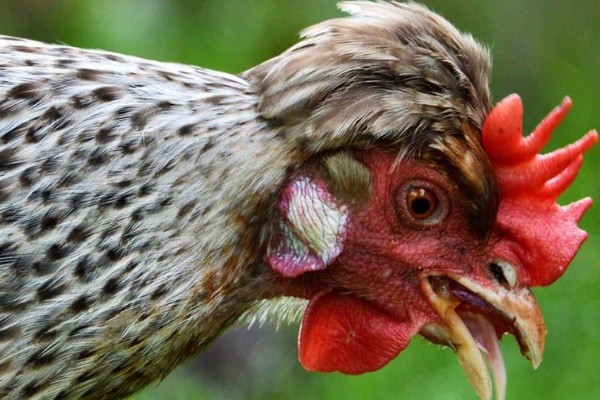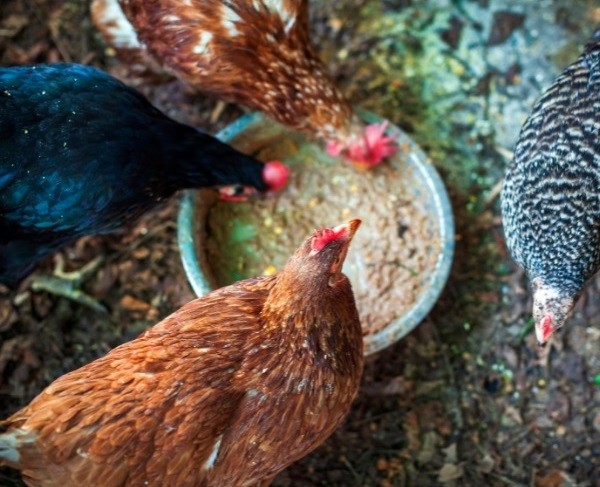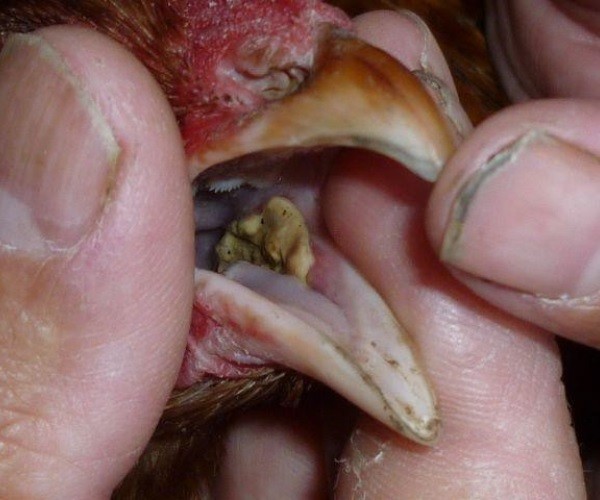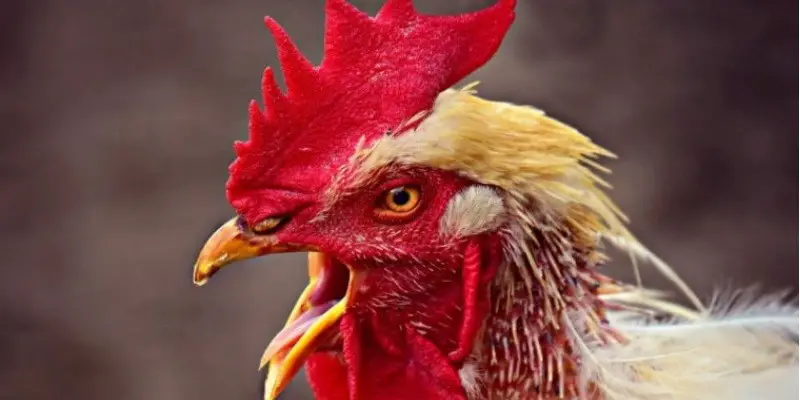Last Updated on November 1, 2023 by Pauline G. Carter
Humans have tongues, well, I know I do, but do chickens have tongues? That’s the question we will be answering today. Find out everything you need to know about chickens and their possible tongues.
There are a lot of myths flying around about chickens but is them having tongues one of these myths? No, chickens have tongues like you and me. Okay maybe not exactly like human tongues but these chickens have tongues that contain taste buds.
What Does a Chickens Tongue Look Like?
Compared to other animals, the chicken has a unique-looking tongue that is small and pointy—describing its tongue is quite challenging since it is not like any other tongue you’ve seen. Chickens have short triangular-looking tongues with sharp tips.
The surface of the chicken’s tongue is similar to that of fine sandpaper. It is rough and covered in tiny barbs. The texture of its tongue is adapted for grasping.
What Color is the Chickens Tongue?

Chickens generally have pink-colored tongues. However, the color may vary across breeds; in some breeds, the tongue may be the same color as the rest of its mouth. However, the rest of the fowl’s mouth is similar to that of other birds.
Do Chickens Have Big Tongues?
Chicken tongues are generally tiny to compensate for their small mouths. You don’t notice their pale pink tongues because they cannot stick them out. However, other birds have much bigger tongues that are commensurate with their large mouth.
The chicken’s tongue rests on the bottom of its beak and thanks to the lingual nail, helps the chicken scoop food into its mouth.
Can a Chicken Live Without Its Tongue?
No, chickens cannot live without their tongues. The chicken’s tongue helps it carry out day-to-day functions such as eating and detecting the flavor of foods.
Uses of the Chickens Tongue
The chicken’s tongue is a very valuable organ. Here are some functions of the chicken’s tongue.
Tasting
Chicken tongues have taste buds akin to that of humans. These taste buds are not as many as human tongues possess, but they help them taste what they eat. So yes, chickens can tell if a food is sweet, edible, or inedible thanks to their tongues.
However, because their taste buds are not as developed as humans, chickens cannot differentiate spicy food. Thus, they will happily consume hot, spicy food.
Eating
Chickens peck their food with their beaks, but the tongue helps them manipulate the food. Once the food is in the chicken’s mouth, they use their tongue to push back all the food before they swallow it. Once the food is swallowed, it goes to their gizzard before winding up in the first stomach.
The nail tip or lingual nail on the chicken’s tongue differentiates it from the tongues of other animals. Thanks to the chicken’s nail tip, it can scoop up food from the floor into its beak.
Communication
While chickens cannot communicate verbally like humans, they still find a way to pass on their messages via sound. The chicken’s tongue helps with the production of some of these tongues. Thus, it is important for efficient communication amongst chickens.
Some birds have more specialized tongues that produce a wide range of sounds and communicate better. An example of such a bird is the parrot with its lengthy and flexible tongue.
Can Chicken Tongues Taste Food?

Yes, the chicken’s tongue is equipped with taste buds that help it taste food. However, they have fewer taste buds than humans and only 2% of these taste buds can be found on the chicken’s tongue. The number of taste buds a chicken has differs according to age, gender, and breed. For example, male chickens boast more taste buds than female chickens.
Do Chickens Need their Tongues to Drink Water?
No, chickens don’t need their tongues to drink water. They scoop up water by opening and closing their beaks in one quick motion that traps the water inside. Once the water is in their mouth, they tilt their heads and swallow the water.
Chicken Tongue Diseases

Like cats, chicken tongues can harbor diseases. Thus, we have listed some ways you can identify a sick fowl from its tongue.
Black Tongue
If your chicken has a black tongue, the chances are that it has a niacin deficiency. Another possibility is that it has a severe respiratory illness. In this case, the chicken is forced to breathe through its mouth, exposing the tip of the tongue. The tip of the chicken tongue dries out and assumes the telltale black color.
Fowl Pox
Fowlpox is a deadly disease that is caused by a virus. It is spread by mosquito and bug bites. Chickens infected with fowl pox have swollen mouths with white patches on the tongue. It can be painful and as a result, you will notice a decline in your chicken’s appetite.
Fowlpox also attacks other parts of your chicken’s body. For example, it can manifest as black sores on the legs. Other places affected by fowlpox are the fowl’s comb and wattle.
Conclusions
Like so many other animals, Chickens have tongues that are furnished with taste buds. The chicken’s tongue helps it communicate, taste, and pick up food. However, because their tongues are short and triangular, chickens cannot stick them out.

